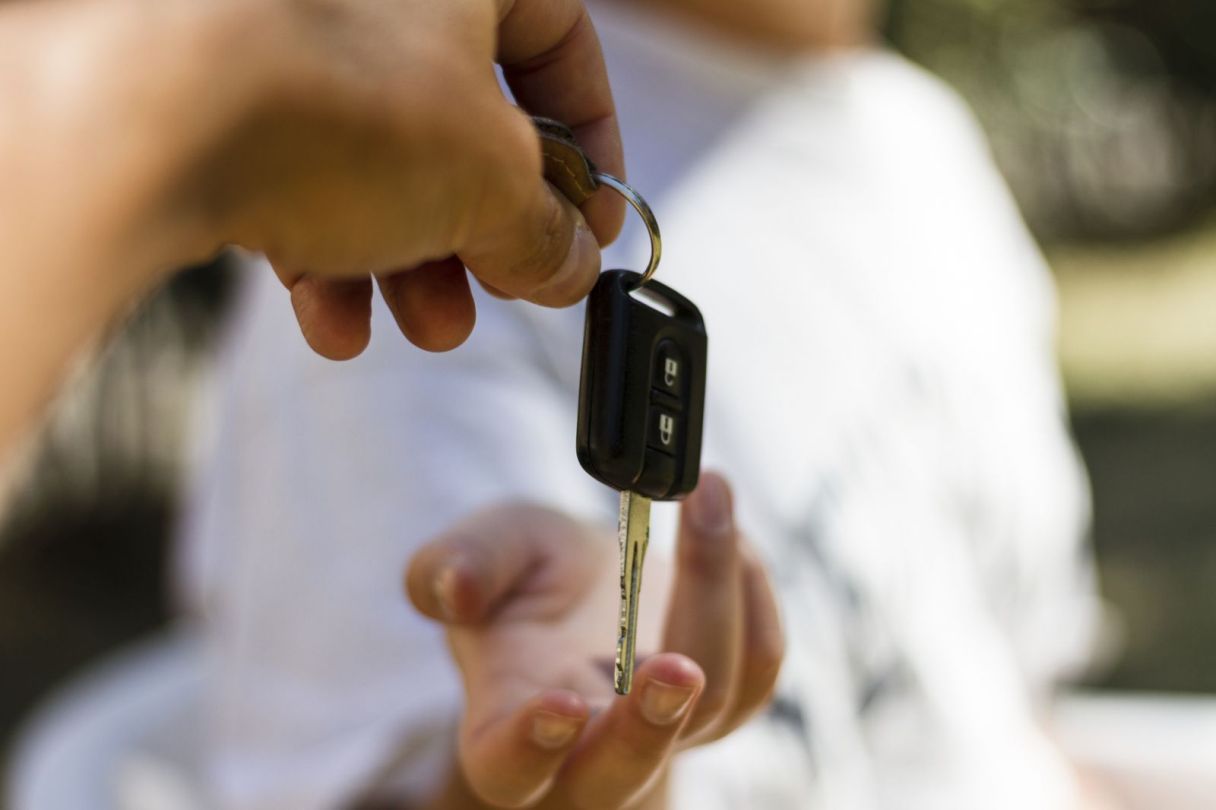When you fall behind on car payments, it can feel like you’re out of options. If you’re worried about having your car suddenly taken by a repo agent, there is a way to handle the situation on your own terms.

A voluntary repossession lets you return your car directly to your lender instead of waiting for it to be towed from your driveway or workplace. While this option won’t erase the damage to your credit, it does give you more control and may reduce some of the extra costs tied to a forced repossession.
In this guide, you’ll learn exactly what a voluntary repossession is, how the process works, and what it means for your credit and finances. You’ll also see some alternatives that may help you avoid repossession altogether.
What Is Voluntary Repossession?
A voluntary repossession happens when you can no longer afford your car payments and decide to return the vehicle to your lender. Instead of waiting for the lender to send someone to repossess it, you take the initiative to surrender it.
The goal is usually to lessen some of the stress, fees, and embarrassment that come with an involuntary repossession. Still, it will be reported to the credit bureaus and lower your credit scores.
How Does a Voluntary Repossession Work?
Once you default on an auto loan, your lender has the legal right in most states to repossess your car at any time. With a voluntary repossession, you contact the lender first and arrange to drop off the car at an agreed location and time.
After the lender takes the vehicle back, it is typically sold at auction. The sale price is applied to your outstanding balance, but if the car sells for less than what you owe, you may still be responsible for the difference, called a deficiency balance.
Since repossession laws differ by state, it’s a good idea to check with your state attorney general’s office to understand your rights and responsibilities.
Voluntary vs. Involuntary Repossession: Pros & Cons
Both voluntary and involuntary repossessions mean losing your car, but the way it happens makes a difference. Here are the pros and cons of a voluntary repossession:
Pros
- Control over timing: You choose when and where to return the vehicle instead of facing an unexpected tow.
- Lower fees: You avoid some of the added costs for towing and storage that come with involuntary repossession.
- Less stress: You don’t have to deal with the embarrassment or inconvenience of a repo agent showing up at your home or job.
- Slightly better credit impact: Credit bureaus note the repossession as voluntary, which looks marginally better to future lenders.
Cons
- Credit damage: Your credit scores will still drop significantly, and the repossession will remain on your credit report for up to seven years.
- Deficiency balance: If the car sells at auction for less than what you owe, you’re responsible for the difference.
- Limited future financing: Getting another auto loan will be difficult and usually comes with higher interest rates.
- Possible collections or lawsuits: If you don’t pay the deficiency, it may be sent to collections or pursued in court.
In short, a voluntary repossession won’t erase the financial fallout, but it gives you more control and may cost you less than waiting for an involuntary repossession.
How a Voluntary Repossession Affects Your Credit Score
A voluntary repossession is still a major negative mark on your credit history. While it looks slightly better than an involuntary repossession, the impact is significant. Your lender will report the repossession to all three credit bureaus, which will cause your credit scores to drop.
This negative item can remain on your credit report for up to seven years. Over time, the effect lessens, but in the first few years, it will make getting approved for loans and credit cards much harder. Future lenders will see that you gave up the vehicle, and while it shows a degree of responsibility, they may still view you as a higher risk.
If you want to recover sooner, it’s important to focus on building positive credit history right away, such as making on-time payments with other accounts and keeping your credit utilization low.
Ready to Fix Your Credit? Start Here.
Answer a few simple questions and get a free step-by-step plan to rebuild your credit.

What Happens to Your Auto Loan After Voluntary Repossession
Returning your car does not automatically wipe out the auto loan. Once the lender takes possession, they usually sell the vehicle at an auction and apply the sale amount to your balance.
Deficiency Balances
If the car sells for less than what you owe on the loan, you are responsible for paying the remaining balance. For example, if you owe $12,000 and the car sells for $9,000, you still have to cover the $3,000 difference. This remaining amount is called a deficiency balance.
Possible Collections or Legal Action
If you do not pay the deficiency balance, your lender may send the debt to a collection agency. That creates another negative account on your credit report, which can hurt your credit scores even more. In some cases, the lender may also file a lawsuit to recover the balance. If they win, the court could allow them to garnish your wages or place a lien on your assets.
Because of these risks, it is always better to work out a payment arrangement directly with your lender before the deficiency balance turns into a bigger financial problem.
Alternatives to Voluntary Repossession
Before giving up your car, explore other options that could help you keep your vehicle or minimize the financial damage. In many cases, acting early gives you more choices.
Talk to Your Lender
If you are struggling to make payments, contact your lender right away. Many lenders would rather adjust your payment schedule than go through repossession, which costs them time and money. You may be able to defer a payment, extend your loan term, or temporarily lower your monthly amount.
Refinance or Modify Your Loan
If your credit is still in decent shape, refinancing could help lower your interest rate or stretch out your repayment period. Even if refinancing is not possible, you can ask about a loan modification.
A modification changes the terms of your current loan so the payments fit your budget better. Keep in mind that extending the term usually means paying more interest overall, but it could help you avoid repossession.
Sell Your Car
If your car is worth close to what you owe, selling it on your own may be a smarter move than surrendering it. You could use the money from the sale to pay off the loan directly. If the sale price falls short, you would only need to cover the smaller remaining balance instead of facing auction fees and added charges from your lender.
Bankruptcy as a Last Resort
Filing for bankruptcy can sometimes stop repossession, but it should be considered carefully. Chapter 7 may allow you to discharge certain debts, while Chapter 13 sets up a repayment plan that could include your car loan. Both options come with serious long-term credit consequences. Speak with a bankruptcy attorney if you think this may be your only path.
Can a Voluntary Repossession Be Removed From Your Credit Report?
A voluntary repossession can remain on your credit report for up to seven years. However, there are ways to challenge it if you believe it is reported incorrectly.
DIY Disputes
You have the right to dispute inaccurate or unverifiable information on your credit report. If you notice errors in how the repossession is listed—such as the wrong balance, dates, or account status—you can file a dispute with each credit bureau. If the lender cannot prove the details are correct, the item must be removed.
Credit Repair Companies
If handling disputes on your own feels overwhelming, you can work with a professional credit repair company. These firms review your credit reports, identify errors, and submit disputes on your behalf.
Reputable companies, such as Credit Saint, have experience in challenging inaccurate negative items. They even offer a 90-day money-back guarantee, which gives you peace of mind while you work on repairing your credit.
Final Thoughts
A voluntary repossession may feel like a way to take control of an overwhelming situation, but it still comes with lasting consequences. Your credit scores will drop, the repossession will stay on your credit report for up to seven years, and you could still owe a deficiency balance after the car is sold.
That’s why it should always be treated as a last resort. Before turning in your car, talk with your lender about possible loan modifications, explore refinancing, or consider selling the vehicle yourself. These steps can sometimes reduce the financial damage and keep a repossession off your credit history.
If a voluntary repossession is unavoidable, focus on what comes next. Stay current on all of your other bills, look for ways to build positive credit history, and start saving for your next vehicle. Over time, these actions will help you recover and put you in a stronger financial position.
Frequently Asked Questions
Can I get another car loan after a voluntary repossession?
Yes, but it will be more difficult. Lenders who approve borrowers with a repossession on their credit report often charge higher interest rates and require larger down payments. It may take a few years of rebuilding credit before you qualify for a more affordable auto loan.
Does a voluntary repossession affect my ability to rent an apartment?
It can. Landlords often check credit reports during the application process, and a repossession is a major negative item. While it may not automatically disqualify you, it could make approval harder, especially in competitive rental markets.
Is voluntary repossession better than continuing to miss payments?
In some cases, yes. Repeated missed payments continue to damage your credit report month after month, while a repossession is a single negative event. If you know you cannot catch up, voluntarily returning the car may prevent additional late payment entries.
How soon can I start rebuilding credit after a voluntary repossession?
You can start right away. Paying all other bills on time, lowering your credit card balances, and keeping new applications limited will help your credit scores recover. Over time, these positive habits will outweigh the repossession.
Will a voluntary repossession affect my ability to get a mortgage?
Yes, especially in the first few years. Mortgage lenders view a repossession as a sign of financial instability, which can make approval harder. That said, if you maintain strong credit in other areas and save for a larger down payment, you may still qualify after some time has passed.
